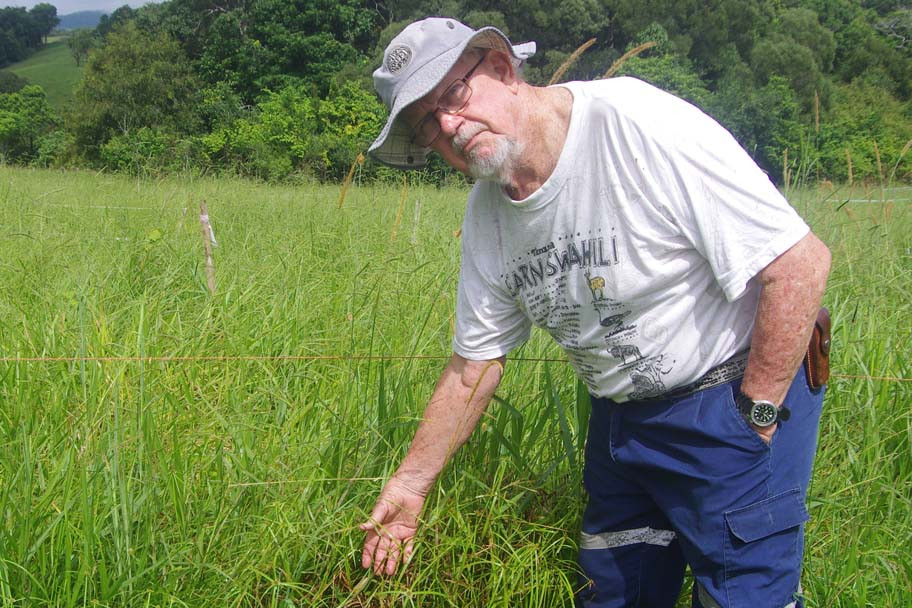On The Land
4 March, 2024
Rust attacks Navua sedge
PRODUCERS have been warned not to be complacent in the wake of a new discovery involving Navua sedge on the Atherton Tablelands.

In an unexpected twist, the region’s most notorious invasive weed, which has tormented landholders since first being discovered on the Atherton Tablelands in the early 80s, has been dealt a blow by becoming infected with rust.
The rust is reducing the weed’s seed production and vigour and is also causing the death of sedge plants.
Despite this first being widely observed on the Tablelands and the wet coastal area around Innisfail, with the onset of the warmer summer months the rust has subsided and rust affected sedge plants are resprouting from the underground rhizomes.
Other landowners have noticed that the sedge is regrowing where it has died off, however the regrowth is still being affected by the rust.
In July 2023 last year, Topaz local Luke Speare noticed rust-affected sedge plants on the property of his mother, Kerry Kelly, and made the first official report to government officials.
“I discovered the rust-affected sedge plants by accident in an area at the back of the property,” Luke said.
“I thought it was interesting that there was some type of pathogen present on the sedge and that it was pretty widespread.
“I am hoping that the rust will help with the control of the sedge. Hopefully something will come out of it.
“I got in contact with local Department of Agriculture and Fisheries (DAF) officials who then came out and inspected it and collected samples.”
Luke said the detection of rust-affected sedge plants highlighted the importance of education and biosecurity and the responsibility of landowners to be aware of what’s on their property.
Subsequent sightings and reportings then became widespread across the Tablelands in July, August and September by other landholders.
Samples were taken by DAF officials and sent away to Brisbane, Canberra and Kew Laboratories in London to officially identify the rust pathogen.
Tarzali landholder and scientist John McKenna said a sedge herbicide trial involving 47 plots had been conducted on his property since 2020.
It was established to evaluate four new herbicides and combinations being developed to control sedge.
The property is one of several in the Far North which is conducting trials for this purpose.
The other two are located on the wet coast.
“I have noticed the rust affecting all of the plant, when it gets down to the stem, it weakens the stem and the sedge plant dies off thus reducing seed production,” John said.
A Malanda Beef Plan Group spokesperson said Navau sedge was the worst weed producers have ever encountered in wet coast Tableland improved pastures.
“Landowners have never seen anything like it!” the spokesperson said.
The rust-affected plants inspected on John McKenna’s Tarzali property were as severe as they had seen anywhere.
“Last year was one of the wettest winter/springs on record on the Southern Tablelands, followed by a very short dry season and an early break to the summer storms,” the spokesperson said.
“Dairy and beef producers are reporting that the rust is still present but is nowhere as prolific as it was in the cooler months.
“Time will tell what impact the rust will have on the ongoing spread of Navua sedge.
“Sempra, and the proper wetting agent for it, is still the best herbicide to use.”
Producers still need to maintain their control program with spot spraying and boom spraying where sedge infestations are thick.
Sempra is a specific selective herbicide for the control of Navua sedge and does not kill improved pasture grasses and legumes.
“With sedge affecting the productivity and the saleability of land, landowners cannot afford not to spray,” the spokesperson said.
“I can guarantee you 100% that if you do nothing it will take over your land.”


